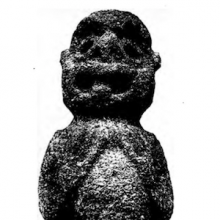Contemporary (1950 CE - Present)
Talking Points on the Malta Meeting
President George H. W. Bush held his first summit with Soviet President Mikhail Gorbachev early in December 1989 onboard a Soviet cruise ship docked off the coast of Malta.
President Bush Orders a Review of US Government International Broadcasting Activities
Following World War II, State Department officials, skeptical of the diplomatic value of programs they considered “propaganda,” persuaded Congress to cut allocations severely for Voice of America (VOA) radio programs that had been established during World War II to communicate US war aims to popu
The Future of Eastern Europe
By the spring of 1990, the future of the individual countries in Eastern Europe was still open for debate. While Poland, Czechoslovakia, and Hungary seemed to be transitioning toward Western-styled democracies, Romania and Yugoslavia, Bulgaria and Albania were following a different course.
Assessing the Future of the Soviet Military
Mikhail Gorbachev's reforms followed two paths: perestroika (restructuring) and glasnost' (openness). In order to reform the Soviet economy, Gorbachev believed it was necessary to cut spending on the Soviet military, both inside Soviet borders and throughout Eastern Europe.
State Department Views on European Security Prior to the 1990 Washington Summit
President George H. W. Bush and Soviet leader Mikhail Gorbachev met for a four-day summit, their second together, in Washington and Camp David beginning on May 31, 1990.

Long Teaching Module: New Zealand Childhoods (18th–20th c.)
This teaching module explores how colonization shaped the nature of childhood in New Zealand both among indigenous populations and those of European descent.
U.S. Reaction to Armenian Earthquake
On 7 December 1988, an earthquake with a 6.9 magnitude struck the Soviet Republic of Armenia. With powerful aftershocks continuing for months following, Armenia struggled to recover.
U.S. Reaction to the Chernobyl Explosion
On April 26, 1986, an explosion at the Chernobyl Nuclear Power Plant in Ukraine led to the radioactive contamination of the surrounding countryside and to radioactive fallout throughout Eastern and Western Europe.
Soviets Discuss Perestroika for Other Communist Countries
In this letter to Mikhail Gorbachev dated October 6, 1988, Georgy Shakhnazarov, Gorbachev's adviser and a champion of reform in the Soviet Union, revealed his views about the urgency of perestroika (reform) in socialist countries worldwide.
Further Discussions on the Roundtable Talks
Prior to the historic roundtable talks between Polish Communist officials and leaders of the opposition that eventually took place from February to April 1989, Solidarity activist Andrzej Stelmachowski secretly met with Secretary Jozef Czyrek, a member of the Polish Politburo.